|
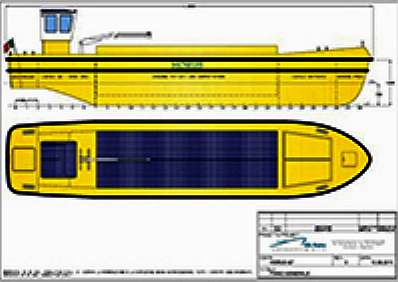
Horus is one innovative technology patent about revolutionary electric propulsion system for boats to “zero impact” applicable to all sectors of marine, lake and river and is based on the knowledge that there
are few alternatives to the use of fossil fuels for marine propulsion.
Title: Innovative marine ecological propulsion system
POD Reference: TOIT20130916002
SUMMARY
An Italian company operating in the maritime engineering services sector has designed an innovative technology based on a revolutionary electric propulsion system allowing boats to sensibly reduce their environmental impacts. The company is interested in commercial agreements with technical assistance provided with respect to assembly and maintenance of the technology. License agreements and technical cooperation agreements are considered as well.

DESCRIPTION
The proposed technology consists of an electric propulsion system characterized by the
renewable energy of next-generation solar panels and high-performance batteries of last
generation too.
This system has found its first application of study and development on a 24 mt mono hull designed by expert hands of this Italian company. It results in a considerable de facto autonomy navigation 8/10 hours at a cruising speed of about 10 knots with
zero emissions of
harmful gases into the atmosphere, zero noise, zero vibration, zero consumption and rechargeable during sailing – hence the patent peculiarity.
The system has been designed to be installed in both new and existing vessels, or semi-displacement hulls to set no size limits, but also as an hybrid system for planning hulls with jet propulsion and for cargo ships. This system (patented) will revolutionize the concept of sailing, offering enormous practical advantages and absolute savings. Best performance can be obtained within 20 – 30 meter overall length boat.

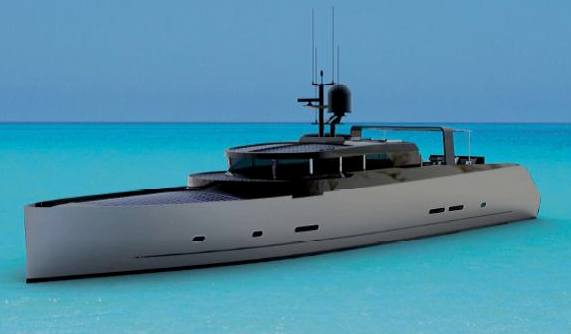
Three different applications have already been
developed:
1.
The first one comes from the desire to build one boat
'Environmental friendly' or 'friend of nature'. The electric propulsion is
based on the use of photovoltaic panels as the main source for generating the energy needed. Panels
consist of a special plastic material that can also be painted and still can guarantee efficiency more than
double compared to other flexible panels, not counting the unbreakable, flexible, lightweight, waterproof
and especially the possibility of being recycled, but in fact, eternal, subject to aging only in the natural
course of new technologies in this field. All this is supported by a storage facility of electricity consisting of
lithium-ion or lithium polymer of last generation that can increase the efficiency of the generation of
electricity.
2.
The second application, with a load of energy equal to 448 kW total (capacity limit of the batteries), allows travelling 70 miles by sailing to 8 / 10 hours at about 10 knots and with no daily costs. The current cost of energy purchased by industrial network is from 7 to 9 cents/Euro each KW, against the traditional fossil fuel-powered yacht of comparable size, without considering the benefits stemming from ZERO harmful gases into the atmosphere.
3.
The third developed application is particularly devoted to access marine reserves with no contamination risk. It has been tested in Parco Nazionale delle Cinque Terre and Venice Lagoon as well. The test showed an energy saving over 50% fuel costs. In addition, total silence at a moderate speed is guaranteed.
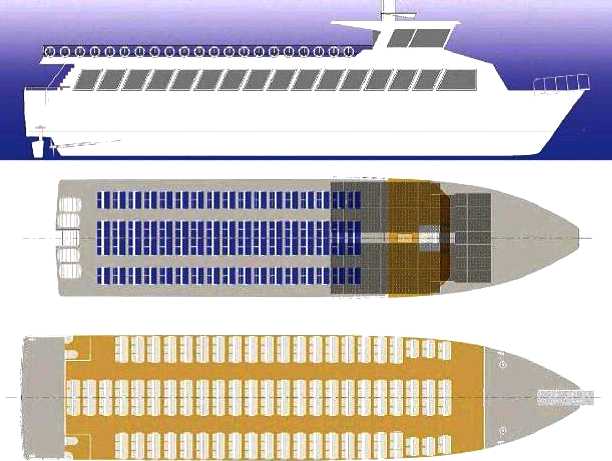
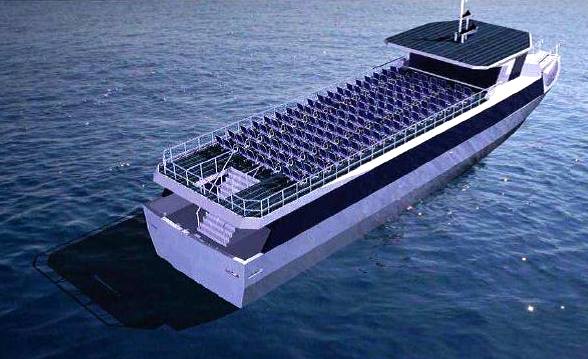
INNOVATION
The proposed technology is able to save completely fuel on board, with no pollution, for long range distance up to 8/10 hours a day totally free. Best performance can be obtain within 20 – 30 meter overall length boats.
Stage of Development: Available for demonstration
Comments Regarding Stage of Development:
Technology supported by WWF (Imprese per la Natura - Companies for Nature campaign)
IPR status = Patents granted
National Patent: 0001397554
International Patent PCTIB2010055929
KEYWORDS
Technology Keywords: 002001 Design and Modelling / Prototypes
002009002 Hybrid and Electric Vehicles
002009005 Shipbuilding
002009006 Traction/Propulsion Systems
Market Keywords: 006005006 Co-generation
NACE Keywords: H.50.1.0 Sea and coastal passenger water transport
H.50.2.0 Sea and coastal freight water transport
M.71.1.2 Engineering activities and related technical consultancy
M.74.1.0 Specialised design activities
PARTNERS
SOUGHT
Type of partner sought: companies operating in the field of maritime industry developing and producing electric propulsion system for boats; engineering companies operating in the areas of ship design and steel manufacturing. The
Italian
company offers technical assistance regarding assembly and maintenance of the technology. On the other hand they can be interested in finding partners able to implement specific technical improvements of the system (i.e. developing typical plant designs). Companies interested in Commercial Agency Agreements with technical assistance, License Agreements and Technical cooperation agreements are sought too.
Type and Size of Partner Sought: SME <10
SME 11-50
SME 51-250
Type of Partnership Considered: Commercial agreement with technical assistance
License agreement
Technical cooperation agreement
Type and Size of Client: Industry SME <= 10
Year Established: 2000
Turnover (euro): <1M
Already Engaged in Trans-National Cooperation: Yes
Languages Spoken: English & Italian
Client Country: Italy
PATENT
DETAILS (not available)
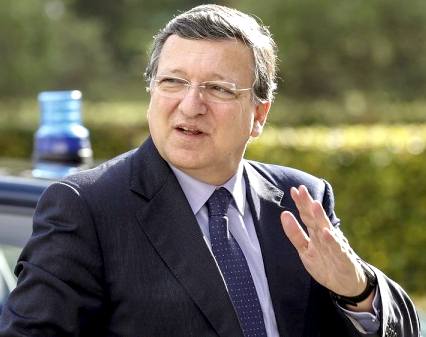
(DRAFT 18/10/2013)
(European Commission C(2013)XXX of XX December 2013)
MG.4.1-2014. Towards the energy efficient and emission free vessel
HORIZON 2020 – WORK PROGRAMME 2014-2015
Smart, green and integrated transport
- Part 11
4. WATERBORNE
A modern, safe, secure and resource efficient waterborne transport system, encompassing
deep sea shipping, coastal shipping around Europe and the use of the internal waterways, is an
essential requirement for an economy which aims at succeeding on the global scale and
supporting a truly integrated internal market.
Today's challenges for the sustainable development of such a system are defined by the
optimal use of energy sources and the minimization of its environmental impacts, in particular
with regard to pollutant and greenhouse gas emissions. The waterborne sector is still lagging
behind in these respects as compared with other transport modes.
MG.4.1-2014. Towards the energy efficient and emission free vessel
Specific challenge: The challenge is to support developments that make new and existing
vessels in maritime transport and inland navigation significantly more efficient and less
polluting through solutions addressing four ship sub-systems: engine, pollution abatement
systems, propulsion, energy sources and management including the efficient operation of onboard
systems.
Waterborne transport still offers an enormous potential for pollution reduction and energy
efficiency gains. The reduction of pollutant and greenhouse gas emissions is far removed
from the progress made in road transport, particularly in the category of older, small to
medium-size vessels which make up a large proportion of intra-European waterborne
transport, including inland navigation.
Since vessels have a long life expectancy, developing technologies for clean retrofit and fuel
conversion solutions is a key aspect of the challenge.
Scope: In order to meet this challenge, proposals should address one or several of the
following aspects:
• Optimisation of conventional ship
engines, including fuel flexibility, new materials,
lifetime performance and near zero emissions engines.
• Development of low-maintenance, affordable off-the-shelf retrofit solutions for
emission reductions of existing engines.
• Development of
Liquified Natural
Gas/dual fuel powered engines for small and midsize
ships, including the specific aspects of retrofitting, fuel supply and storage, safety
(on-board and on-shore) and classification, and solutions to address the risks of methane
slip.
• Design and demonstration of new and improved propulsion means and vessel
configurations that include the entire drive train and the propeller and hull optimisation
for vessels, including applied research in Computational Fluid Dynamics
(CFD).
• Use of new energy sources including renewables, alternative fuels, hybrid and electric
solutions with the aim to demonstrate the feasibility of the zero or
near-zero emissions
vessel.
Solutions that are sufficiently close to market take-up so that ship owners will consider these
concepts in their future investment plans should be demonstrated. This applies in particular to
the existing fleet and retrofitting solutions which must be cost-effective and present a
considerable societal return on investment.
Research and innovation efforts should enable pilot applications for new engines, new
pollution abatement technologies, new propulsion trains and alternative fuels solutions to
enter the market by the end of the research period.
The Commission considers that projects requesting a contribution from the EU between the
range of 8 to 17 million euro would allow this specific challenge to be addressed
appropriately. Nonetheless, this does not preclude submission and selection of proposals
requesting other amounts.
Expected impact: It is expected to:
• Achieve efficiency gains and emission reductions that go significantly beyond normal
technological progress and the benchmarks of the existing regulatory regimes at lowest
costs.
• Achieve fuel efficiency gains of at least 15% for retrofitting per type of solution (engine
or propulsion) and at least 30% per type of solution for new concepts.
• Accomplish a 25% decrease in greenhouse gas emissions and a reduction of, on
average, 80% in air pollution compared with Best Available Technology (BAT).
Experience acquired in this innovative field should be broadly made available to ship owners
requiring improvements in the environmental performance of their vessel.
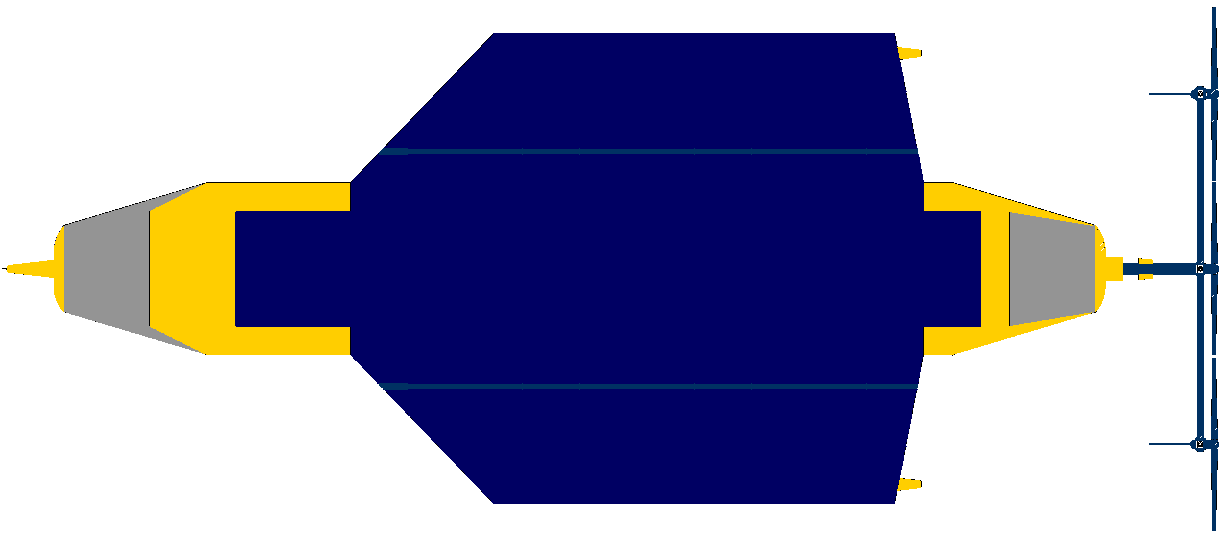
CCC
CHALLENGER - This is a draft design for the 'Climate Change
Challenger,' a zero
carbon ship concept that may be up scaled to larger cargo
and cruise
vessels. If the concept is proven, it could provide a way for the IMO to
reach their zero carbon objectives for 2050 and 2100.
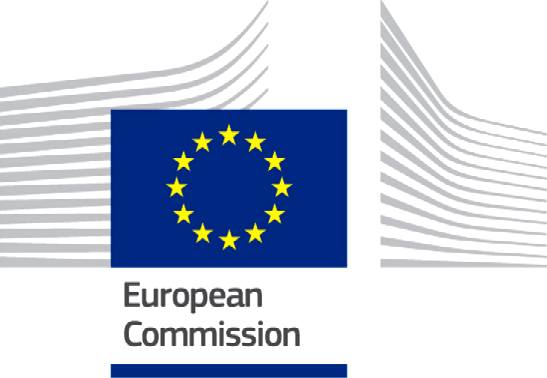

H2020 Call: Zero or Near Zero Carbon Vessels (Section 4, Waterborne - MG.4.1-2014)
Seeking shipbuilders to co-develop low drag hull technology
 Ref: RDUK20131220001
Ref: RDUK20131220001
A UK company is part of a consortium of UK members seeking a European partner to join a Horizon 2020 funding bid. The aim is to develop a novel low-drag hull. They are seeking industrial partners in the shipbuilding industry to co-develop the innovation to proof of concept and to create a demonstration prototype. They are also seeking potential end users, such as supply ships.
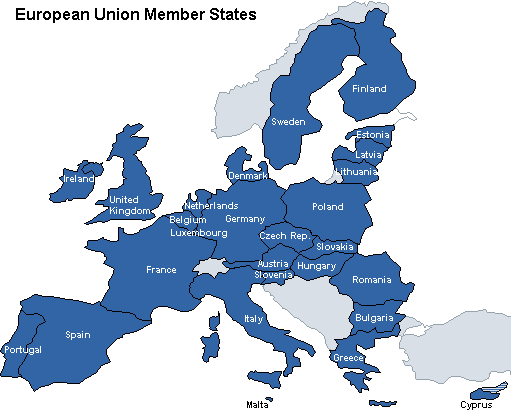
PARTICIPANTS
DECEMBER 2013 (Belgian brokerage event)
|
University
of Oulu — Susanna
Pirttikangas
|
University
|
|
H2020
Expertise: Data Refinement for Data Reserves
|
|
University
of Oulu — Jukka Riekki
|
University
|
|
H2020
Expertise: UOulu expertise related to ITS
|
|
ALMA
Consulting Group — Anne-Cécile de Giacomoni
|
Consultants
|
|
H2020
Expertise: Your partner for preparing and managing
your European project
|
|
BAE
Systems HybriDrive Solutions — Matthew Lawrence
|
Large
Company
|
|
H2020
Expertise: BAE Systems HybriDrive Solutions
|
|
De
Montfort University — Clare Edwards
|
University
|
|
H2020
Expertise: Computational Intelligence for Transport
|
|
H2020
Project idea: Personlised intelligent urban mobility
|
|
Transport
& Travel Research — David Blackledge
|
Consultants
|
|
H2020
Expertise: Sustainable Mobility
|
|
University
of Portsmouth — Dylan Jones
|
University
|
|
H2020
Expertise: Intelligent decision support and
algorithms for transport, logistics, and supply chains.
|
|
Link
Technologies S.A. — Nicholas Damianos
|
SME
|
|
No
cooperation profiles specified
|
|
PARAGON
S.A. — Harry Tsahalis
|
SME
|
|
H2020
Expertise: Transport (Aero, Auto, Marine, Rail) - ICT
+ PPPs (EGVI, SPIRE, FoF, EeB) - Security - Energy &
Environment
|
|
H2020
Expertise: TBC
|
|
H2020
Project idea: AVIATION #1 - TBC
|
|
H2020
Project idea: AVIATION #2 - TBC
|
|
University
of the Aegean - Dept. Shipping Trade an Transport —
Nikitas Nikitakos
|
University
|
|
No
cooperation profiles specified
|
|
RSOE
(National Association of Radio Distress-Signalling and
Infocommunications) — Gergely Mezo
|
Other
|
|
H2020
Expertise: IWT ICT expertise - Danube, Hungary
|
|
National
Maritime College of Ireland — Grainne Lynch
|
University
|
|
No
cooperation profiles specified
|
|
Waterford
Institute of Technology — Steven Davy
|
University
|
|
H2020
Expertise: Telecommunications and Future Networks to
support ITS, Urban Mobility
|
|
Alkè
Electric Vehicles — Luca Salvan
|
SME
|
|
No
cooperation profiles specified
|
|
Alkè
Electric Vehicles — Lamberto Salvan
|
SME
|
|
H2020
Expertise: New concepts connected to E-mobility &
Transport
|
|
H2020
Project idea: EV for separate waste disposal with
innovative micro-compactor solution
|
|
H2020
Project idea: Intermodal system for urban areas using
EVs
|
|
H2020
Project idea: Off-road EVs for logistics in remote
areas
|
|
Centre
for Research on the Economics on the Economics of Institution
— Edoardo Marcucci
|
University
|
|
No
cooperation profiles specified
|
|
D'Appolonia
s.p.a — Lucas Garvia Martin
|
Consultants
|
|
No
cooperation profiles specified
|
|
Ernst&Young
— Iacopo De Angelis
|
Large
Company
|
|
H2020
Expertise: Poste Italiane
|
|
THALES
ITALIA spa — Roberto Rossi
|
Large
Company
|
|
H2020
Expertise: Collaboration related to some topics
|
|
Almende
B.V. — Alfons Salden
|
SME
|
|
H2020
Expertise: Almende BV Expertise
|
|
Polytec
R&D Institute — Frode Skaar
|
Research
|
|
No
cooperation profiles specified
|
|
Road
and Bridge Research Institute — Michal Karkowski
|
Research
|
|
H2020
Expertise: ITS cooperation
|
|
INOVA+
— Johan Benesch
|
SME
|
|
H2020
Expertise: Dissemination and creation of networks
|
|
Institute
of Systems and Robotics - University of Coimbra — Pedro
Fernandes
|
Research
|
|
H2020
Expertise: Autonomous and Cooperative Electric
Vehicles with Communications for Urban Mobility Improvement
|
|
TIS,
consultants transport, innovation and systems — Daniela
Carvalho
|
Consultants
|
CONTACTS
LINKS
Bluenergy
Africa
Homepage
Time
efficiency
Customer
satisfaction and safety
Water
Greener
waterborne transport
Competitiveness
Safety
and security
Intermodality
and logistics, including ports and inland waterways
The
Ocean of Tomorrow
WATERBORNETP
Multimodal
Sustainable
urban transport
Intermodal
freight transport
Intelligent
transport systems
Get
funding
A
Guide to Funding
Joint
Technology Initiatives
Research
projects
Publications
EU
Research Priorities
International
cooperation
A
European Research Area (ERA)
Innovation
and competitiveness
National
Contact Points
About
us
Who's
involved?
Mapping
EU Transport Research
http://www.2020visionnetwork.eu/sme
EU
funding schemes Horizon
2020
http://cordis.europa.eu/fp7/ncp_en.html
http://www.bluenergyafrica.com/sun-cube/
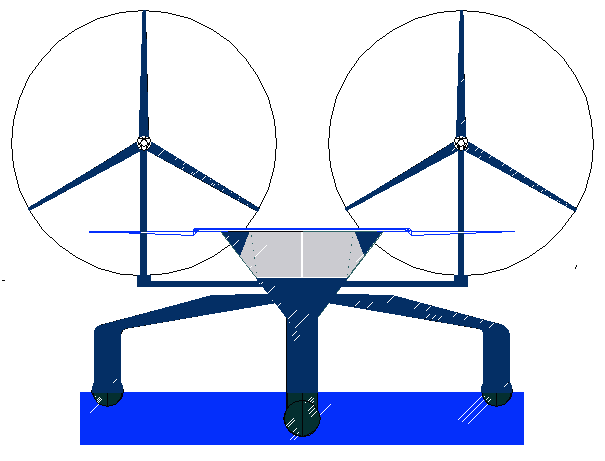
The Bluefish
ZCC platform is enabling technology for Zero Carbon Cruisers (ZCCs) of the
future. The ZCC concept is based on a lightweight SWASH
hull design that is extremely stable, that is under development in the UK
in medium scale model format for tank testing. The design uses no diesel fuel to
traverse the oceans
at relatively high
speed 24/7 and 365 days a year if required - only possible with a unique energy harvesting
system (roughly 50/50 solar/wind split). The
hullform is suited to: manned, drone, or
autonomous operation. It is estimated that the base vessel will pay for itself in fuel saved every ten years.
The bigger the vessel, the more fuel is saved. With rising bunker prices
the economics of operation are favorable, apart from green politics. The
Combat ZCC MK26 shown above is a 50-60 ton ship rated at 176-211kW of energy harvested to
displacement ratio giving an EH/D of 3.52kW/ton - to provide average cruising speeds
in the region of 7-10 knots, and sprint capability of
around 20 knots on renewable energy and 30+knots in auxiliary mode, dependent on motor/equipment specification. The
proposed MK26 is 50m
(163ft) on the waterline. The OAL is 56M (183ft).
|












